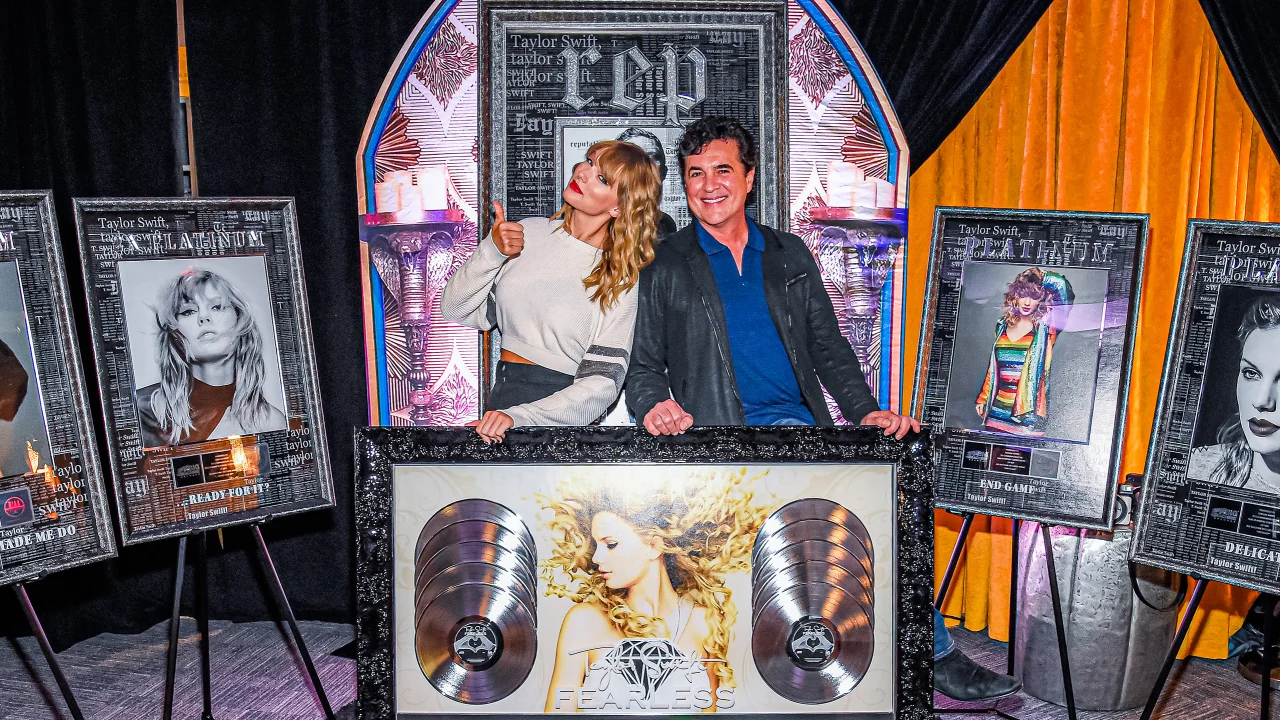new manager is rumored to be dating an employee, I’m terrified of following up with people when they don’t respond, and more
It’s four answers to four questions. Here we go… 1. Incoming new manager is rumored to be dating an employee I have a moral dilemma. I was part of Team A for many years. I was promoted and am now a director for Team B, though I still have close ties with many on Team […] The post new manager is rumored to be dating an employee, I’m terrified of following up with people when they don’t respond, and more appeared first on Ask a Manager.

It’s four answers to four questions. Here we go…
1. Incoming new manager is rumored to be dating an employee
I have a moral dilemma. I was part of Team A for many years. I was promoted and am now a director for Team B, though I still have close ties with many on Team A. At the same time I was promoted, my previous director also left and they just hired a new director for Team A. I don’t know her well, but there is a rumor going around that she is dating someone who will now be her direct report. I have no actual knowledge of this, but I’m concerned for the people on Team A who I’m close with if it is true. This new director will also work closely with me as part of the leadership team.
Do I tell our mutual boss about the rumor? Or do I let it play out? I don’t want to cast doubt on a new leader early in her career, but I also know that some on her new team have already heard the rumor.
I would. That’s so wildly problematic if it’s true that you’ve really got to speak up — and if it’s not true, it’s a problem that people think is, so either way there’s something to be dealt with. Just be very, very clear about the limits of your knowledge — specifically, that you don’t know for sure and are only passing along that you’ve heard rumblings. For example: “I want to say up-front that I have no first-hand knowledge of this and no idea if it’s true, but I keep hearing that Jane Warbleworth is dating Agamemnon Flanagan. If it’s true, it’s obviously a concern that she’ll be managing him, and if it’s not true it’s a problem that there’s much speculation around it — so I wanted to flag it for you either way.”
2. I’m terrified of following up with people when they don’t respond
I’m looking for accommodation ideas to help me communicate better with my supervisors (who are very supportive but busy). I work in social services. My job is hybrid, with most people working in the office one day a week with the rest of their time doing home visits with clients and working from home.
My biggest issue is I am terrified of sending reminders to anyone in a position of power over me if they forget to respond to my emails. They say they never mind, and I know they are unlikely to be cruel to me for doing it, but my body reacts according to my past experience and I either avoid it (causing issues because I miss info I really need) or do it while crying and hyperventilating so the reminder email comes out like, “Please answer my question please this is so hard I need help please” and the questions are rarely answered even when I do send reminders.
I’m trying to ask for some kind of scaffolding, but have no idea what they will think is reasonable or not. They don’t seem worried about it at all and probably think I’ll just figure it out on my own, but I’m afraid of the effect it’s already had on my job.
It would mean the world if the supervisor this happens with the most would write me an email along the lines of, “I am okay with receiving a reminder email if I haven’t responded after 72 hours and I promise I will never be mean to you, punish you, or retaliate against you for doing this” so I could pin it to the top of my email and reference it every time I need to write a reminder email. I have a lot of other ideas too, and I’m not attached to any particular one, but I need a way to either be reassured to really internalize that this is okay, or a way to make my emails more likely to be responded to in the first place.
I think that specific email might be a bit much to ask many managers to write — even though they almost certainly hold that sentiment — but you could definitely ask them for different forms of help with this! For example, you could say, “When I need an answer from you on something and haven’t heard back after a few days, I get really nervous about following up — I don’t want you to think I’m nagging or overstepping. It would really help to know if it would come across that way and potentially irritate you, or whether I’m worrying for nothing!” You’re likely to hear that they’re completely fine with reminders, and in fact actively want you to send them.
If you strongly prefer something in writing that you can re-read for reassurance, with some managers you could follow that up with, “I know this might seem strange, but I would find it so helpful to have something I could refer back to when I’m feeling nervous about checking back with you!” and then ask if they’d shoot you an email affirming that. (You’d just need to make sure to say it in a way that doesn’t sound like, “I’m trying to get this in writing to use as ammunition if you ever do seem annoyed.”)
The other route you could take is more of an accommodations one, where you’d frame it as, “I’m really struggling with anxiety about this, and the accommodation I think would help is if you could email me something I could refer back to later about how you want me to handle follow-ups when I need to check back in with you.” I don’t think it’s realistic to ask that they say, “I promise I will never be mean to you, punish you, or retaliate against you for doing this” (in part because some managers would be concerned that if they ever sound aggravated or harried, you’ll take it as a violation of that agreement), but you can definitely ask them to write down that they want you to follow up with them and encourage you to do it.
Related:
how to get your boss to read your emails
how do I follow up with people who are bad at responding to work emails?
3. Can I wear Birkenstocks to conferences?
I have an extremely stupid but unbelievably important question for you. How good at my job do I have to be to wear Birkenstocks to conferences? For context, we’re talking academic conferences mostly with scientists, but generally people are wearing business or business casual because we are in the medical field. I have tried so many kinds of nice shoes at conferences, from low heels to Oxfords to flats to loafers, and every single time I come home with huge blisters and horrible, aching feet. I just want to wear my Birkenstocks! I feel like they’re low key enough to go unnoticed amongst the fancy sandals worn by the other female attendees but they do also have a pretty distinct look.
They do have a very distinct look, and it’s not typical to see them at professional conferences. That doesn’t mean there aren’t industries where they’d be perfectly fine (and if anything, I’d guess some parts of academia would be among them). But if people are generally wearing business or business casual, I’d try other options before resorting to the Birkenstocks. I mean, if you need them, you need them — and people sometimes need to wear all sorts of not-typical businesswear for medical reasons — but before you resort to Birkenstocks, I’d rather you try something like a black sneaker first. It sounds like everything you’ve tried so far has been a dress shoe, and a black sneaker might be much more comfortable and blend in more easily than Birkenstocks will.
4. Should I even bother applying if I don’t want to write a cover letter?
I work at a nonprofit that is tangentially impacted by a lot of the funding cuts at the federal level. Our organization is doing well overall and is highly adaptable, so I’m feeling fairly secure in my role (which I enjoy very much!) for now. If the past six months have highlighted anything for me, though, it’s that nothing is predictable. Given everything, I’m feeling like I should put feelers out and keep options open.
My resume is strong and up-to-date, and there are a few roles advertised that I’m eyeing, but I simply cannot bring myself to write a compelling cover letter! I know a cover letter is a vital part of selling yourself as a candidate, I know I should highlight why I’m looking to change industries after nearly 10 years, and I know that I should write and submit a unique cover letter with each resume. But when I start writing about what I’m looking for and where I’m coming from, it just reinforces in my mind that I do like my job and I don’t want to leave unless I end up needing to!
I’d like to submit my resume a few places to see what connections I can make just in case, and who knows? If the perfect opportunity comes of it, maybe I would choose a change. But is it even worth submitting a resume without also adding a cover letter? Or would I just be wasting my own time and cluttering up someone’s inbox? Are there other ways to keep myself open to new opportunities and stay prepared in case I do end up needing to find a new job in the next 3.5 years?
With most nonprofit roles, you should write a cover letter; that’s a field where they really tend to matter. That’s especially true if you’re trying to change fields, because they’ll want to know why you’re applying with them in particular.
But that doesn’t mean you have to write something from scratch for each individual job; write something that basically works for most of them, and use that. It’s not the absolute best approach (the best approach would be more customization — again, especially because you’re in nonprofits), but it’s the approach most of your competition is going to be using anyway and it’s better than skipping the letter altogether.
The post new manager is rumored to be dating an employee, I’m terrified of following up with people when they don’t respond, and more appeared first on Ask a Manager.


























































































































































